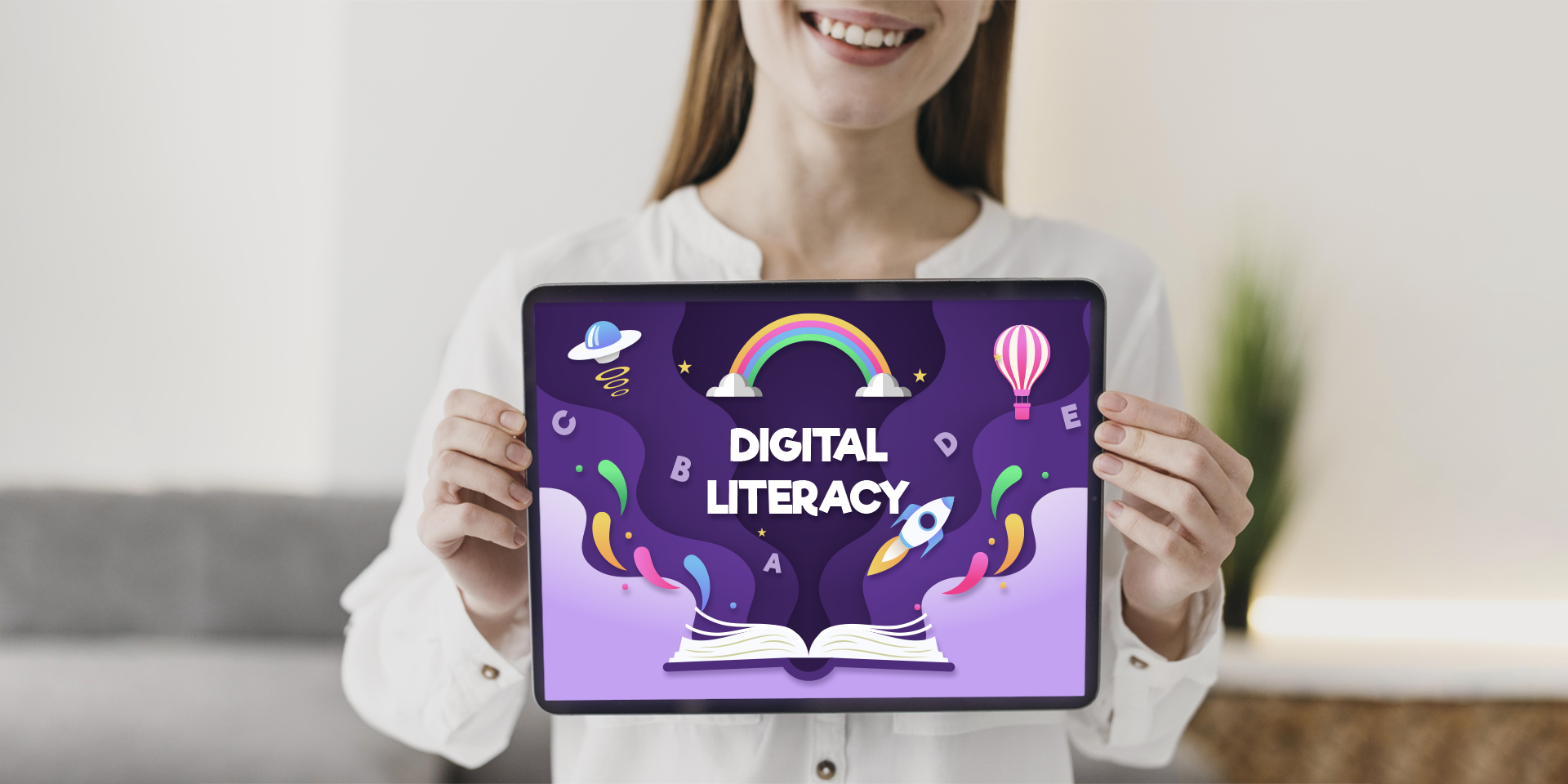We are in a digital revolution in India. Everything has gone digital – booking of tickets, paying utility bills, grocery shopping, banking, and even kids education. This has all become possible due to the advancement of science and technology.
In today’s fast paced and tech-savvy world, being just literate through the traditional method of books is not enough. Digital literacy is crucial and holds utmost importance for both men and women. There is an urgent need to impart and promote digital skills in Indian women.
The Digital India Mission was launched with the purpose of reducing the digital gap across different sections of the society.
What does digital literacy actually mean?
Digital literacy involves the understanding and utilization of various digital tools and technologies by individuals for performing meaningful operations. For example, any individual who knows to operate a laptop, computer, smartphone, and other IT related devices is digitally literate.
The Internet Saarthi initiative
Back in 2015, the Internet Saarthi initiative was launched by Google in collaboration with the Tata Trust. The purpose of launching this initiative was to promote digital literacy amongst women in the rural communities. The Internet Saarthi initiative has successfully completed more than six years in the country and the results are there for everyone to see. This project expanded to some of the major Indian states such as Maharashtra, Rajasthan, Odisha, and Punjab. Through this initiative, women who did not have access to a smartphone or an internet connection have set up their own businesses successfully online. This programme has created an impact on more than 30 million rural women. The Internet Saarthi programme has been able to reduce the gender gap in digital literacy that existed in 2015. At present, 4 out of 10 people that are digitally literate (internet users) in rural India are now women. A lot of women who themselves witnessed phenomenal growth through the Internet Saarthi programme took up the initiative and started imparting their learnings and knowledge to the other women living in their villages.
Another great story of the Indian women weavers in Gujarat
As the pandemic struck India, it affected the lives of the small artisans and weavers, especially those in Gujarat. Their life and work had come to a standstill. However, these women weavers took part in the digital literacy programme called ‘The Leelavati Project’ which was managed by the World Bank. The main purpose behind this project was to impart financial and digital literacy to the rural Indian women. These self employed women weavers are now able to promote and sell their products online on Facebook and Instagram. Also, they are able to receive money through cashless means. This is a great example of empowering women who have learned the art of selling and marketing things on their own.
We Think Digital Programme by Facebook
The ‘We Think Digital Programme’ was launched by Facebook in partnership with the National Commission for Women (NCW) and Cyber Peace Foundation. This programme was launched with the aim to provide digital literacy training to one lakh women across seven states in a year.
Digital literacy empowers women and makes them aware about different digital technologies and digital skills and how to use them. For example, in order to stay in the competition and survive in today’s world, working women need to have knowledge about the latest technologies such as artificial intelligence, augmented reality, virtual reality, machine learning, etc.
Digital literacy strategies that can be implemented
- Conducting simple learning digital training sessions for illiterate women.
- Conducting free awareness sessions for women regarding digital usage.
- Imparting formal skills training to women.
- Motivating women to continue their education at least till secondary.
- Corporate tie ups to promote women entrepreneurship.
- Promoting gender equality through learning curriculum.
Using digital literacy, women can participate in various social causes and learn new skills to multiply the income and savings. For the success of any country and the entire economy, women empowerment is essential.


